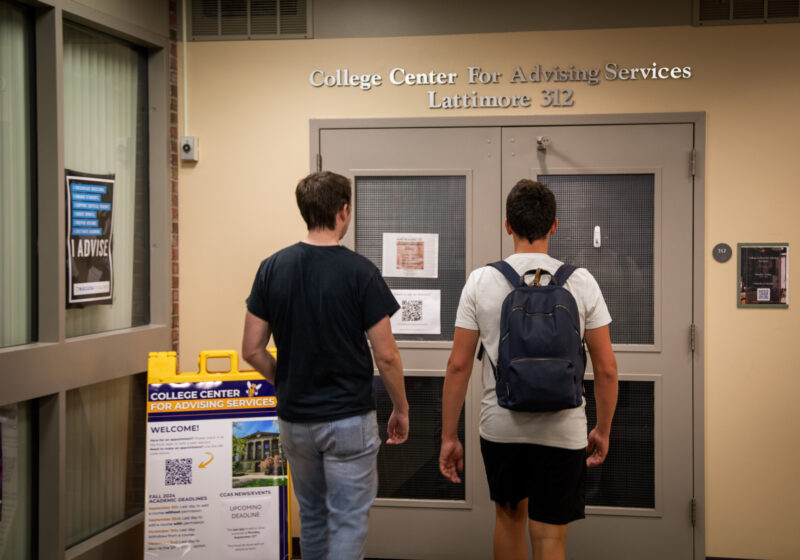Over the past couple of weeks, efforts by Women’s Caucus and VOX have brought Crisis Pregnancy Centers, or CPCs, to the attention of the campus community. These efforts, the groups allege, were to counter ‘misleading flyers” posted around River Campus and to expose CPCs as fake pregnancy care providers masquerading as medical clinics. While we commend Women’s Caucus and VOX for their desire to protect women from potentially harmful health care misinformation, we find that their efforts were misdirected through a misunderstanding of pregnancy care centers, their missions and their services.
Women’s Caucus and VOX have cited flyers that appeared in dorms as the reason for their self-named campaign of action against CPCs. These flyers were posted by members of the Students’ Association-recognized group Rochester Students for Life. The flyers contained the simple and nonconfrontational message, ‘Worried you might be pregnant? Wondering where to turn? Call any of these local pregnancy care providers for help.” Contact information for three local pregnancy care centers Birthright, Women’s Care Center and CompassCare was then listed. The flyers did not mention abortion, nor did they make any medical claims.
As members of Rochester Students for Life, we apologize for making these postings anonymously. Leaving our name off of these flyers was an oversight, not an intentional action. In hindsight, we also realize that the information we provided was insufficient to give women an accurate idea of the services available to them through these pregnancy care centers. However, these were our mistakes and should not be used to discredit Birthright, Women’s Care Center or CompassCare. We deem it appropriate to have offered these three pregnancy care centers to the campus community as legitimate pregnancy care resources.
Major complaints brought against CPCs are that they are not medical clinics and that they do not provide accurate medical information or comprehensive options counseling. It should be noted that pregnancy care centers are run independently of one another. Though some care centers may fail to provide legitimate services, it is incorrect to generalize about the services provided by all CPCs based on a few isolated examples.
The pregnancy care centers we mentioned seek to empower women to make their own informed decisions when faced with unplanned pregnancies, yet each center we listed has different offerings of services and resources and takes a unique approach to its mission.
Jim Harden, the director of CompassCare, stated, ‘CompassCare actually is a medical office and not a CPC… Services offered include limited OB care including pregnancy confirmation as well as selected Sexually Transmitted Disease testing and total options consultation.”
Women’s Care Center and Birthright neither are nor claim to be medical clinics. Women’s Care Center offers pregnancy tests with referrals for ultrasounds and medical care. It provides information about pregnancy, abortion, childbirth, parenting, sexually transmitted infections and other related issues, as well as counseling and material aid. Birthright also offers free pregnancy tests, but with the qualification that a physician must verify the pregnancy. It offers a mentoring program, referrals for medical and adoption services, as well as material aid.
Neither Rochester Students for Life nor the pregnancy care centers with which we interact have any intention of tricking women into going to these centers expecting to receive medical or other services not offered by these centers. The broad term ‘pregnancy care” includes care for emotional and material needs, something Birthright and Women’s Care Center focus on rather than professional medical care. We fully believe that students here should be aware of these services and resources. The fact that University Health Service recommends Birthright on its Web site as a resource to students affirms the value of such nonmedical services. It was our intent in posting flyers to increase the availability of this information, not to advertise for any particular center or to mislead.
We believe that a woman should have the right to choose the services of a crisis pregnancy care center as she deems appropriate for her particular situation. Since each pregnancy resource center offers different kinds of counseling and material aid, we do not believe that women should be limited to choosing between Freedom of Choice, Planned Parenthood and strictly medical clinics.
Although we cannot speak for every CPC or pregnancy care center, many of them, including the three we mentioned, are resources that empower women to make their own choices about unplanned pregnancies apart from pressure they may be facing from those around them. It is important that correct information regarding these resources be available so women can make accurate assessments and choose the options best for them. To this end we encourage education based on accurate understanding and representation of all pregnancy care resources, not generalizations that attempt to narrowly define diverse offerings to women seeking care.
Dick is a member of the class of 2011.
Wormsbecher is a member of the class of 2010.




